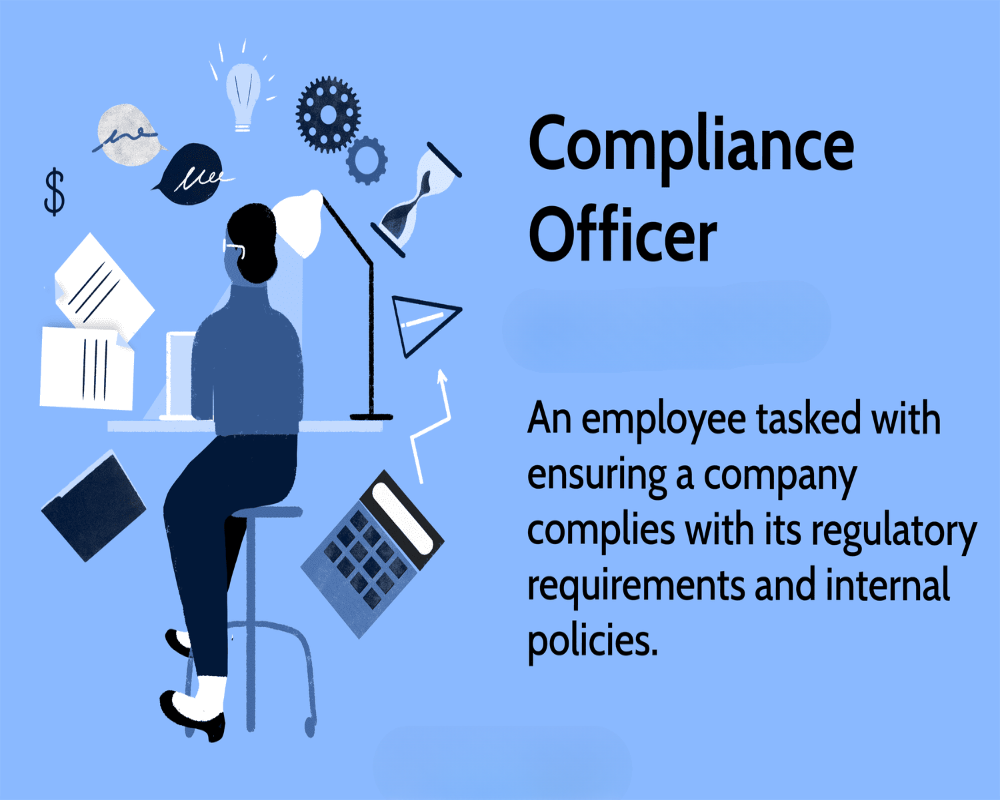Introduction
In the modern industrial landscape, compliance has evolved into a core component of operational and strategic decision-making. As regulatory frameworks become more complex and expansive, the need for dedicated professionals to oversee legal conformity and ethical business conduct has grown. Compliance officers play a pivotal role in ensuring that industrial organizations adhere to all applicable laws, regulations, internal policies, and industry standards. Their presence contributes to risk mitigation, regulatory accountability, and corporate integrity. This article explores the key responsibilities, functions, and strategic importance of compliance officers in industrial operations.
Monitoring Legal and Regulatory Compliance
The primary responsibility of a compliance officer is to ensure that the company operates within the framework of laws and regulations that govern its industry. This includes environmental laws, labor legislation, occupational health and safety standards, tax regulations, anti-corruption laws, and trade compliance. Compliance officers must stay updated with evolving legal requirements and interpret how these changes impact the organization’s operations.
They also assist in preparing reports and filings that are required by regulatory bodies, ensuring accuracy and timeliness. Regular audits, both internal and external, are often facilitated and supported by compliance officers to validate adherence to statutory obligations.
Policy Development and Implementation
Compliance officers are instrumental in drafting, reviewing, and implementing the organization’s internal compliance policies. These policies define the expected standards of conduct for employees, contractors, and partners. Once developed, the compliance officer ensures these policies are effectively communicated throughout the organization.
They also oversee the integration of these policies into everyday business practices and ensure that all departments understand and follow them. In cases of industry-specific requirements, such as manufacturing or pharmaceutical regulations, compliance officers tailor internal policies to reflect specific legal expectations.
Training and Awareness Programs
To cultivate a culture of compliance, officers are responsible for designing and delivering training sessions for employees at all levels. These programs cover topics such as workplace safety, ethical conduct, data privacy, anti-bribery measures, and reporting mechanisms for violations.
Regular training sessions not only fulfill legal training requirements but also empower employees to act in alignment with organizational values. Compliance officers also provide orientation sessions for new hires and conduct refresher courses as regulations change.
Risk Identification and Mitigation
An essential function of a compliance officer is to identify potential areas of risk within industrial processes. Through regular assessments, inspections, and audits, they monitor for practices that may lead to legal violations or financial losses. Once risks are identified, they work with management to develop strategies to mitigate these risks, including revising procedures, enhancing control mechanisms, or introducing technological solutions.
They are also involved in due diligence processes during mergers, acquisitions, or partnerships to assess compliance risk in the external business environment.
Handling Compliance Breaches and Investigations
Compliance officers are tasked with receiving and investigating reports of misconduct, policy violations, or regulatory breaches. They manage the investigation process, gather evidence, and work in coordination with legal and human resources teams to recommend appropriate disciplinary or remedial actions.
In cases where external regulators are involved, the compliance officer serves as the liaison between the organization and the authorities, ensuring timely and transparent communication.
Reporting and Documentation
Comprehensive documentation is a critical component of compliance management. Compliance officers are responsible for maintaining accurate records of compliance activities, audit findings, training sessions, risk assessments, and incident reports.
They also prepare compliance reports for senior management and boards of directors, summarizing key findings, policy updates, and areas of concern. These reports support strategic planning and are often used to demonstrate compliance during external inspections.
Strategic Advisory Role
Beyond operational responsibilities, compliance officers also contribute to the organization’s strategic planning. They advise senior leadership on the compliance implications of new projects, expansions, and technological innovations. Their insights help align corporate growth with regulatory expectations and ethical standards, reducing the likelihood of legal setbacks or reputational damage.
Conclusion
Compliance officers are vital guardians of regulatory adherence, ethical conduct, and organizational integrity within the industrial sector. Their multifaceted role spans legal interpretation, policy enforcement, risk management, employee training, and strategic advisory functions. By ensuring that operations remain aligned with legal and ethical standards, compliance officers help industrial enterprises avoid penalties, enhance credibility, and foster sustainable growth. In a rapidly evolving regulatory environment, the role of compliance officers will continue to expand, making them indispensable to responsible and resilient industrial governance.
Hashtags
#ComplianceOfficers #RegulatoryCompliance #IndustryStandards #RiskManagement #CorporateGovernance #ComplianceCulture #EthicalBusiness #ComplianceTraining #AuditAndCompliance #LegalCompliance #BusinessIntegrity #ComplianceLeadership #IndustryRegulations #ComplianceStrategy #RiskAssessment #ComplianceMonitoring #CorporateResponsibility #ComplianceAwareness #ComplianceProfessionals #BusinessEthics


